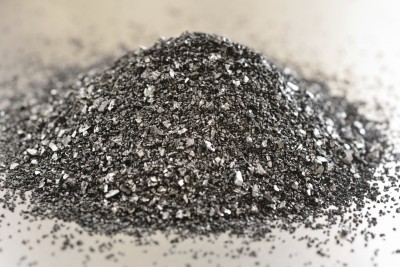






What is activated charcoal? Used in many commercial, industrial and household applications, activated charcoal is charcoal that has been treated with oxygen, which creates a fine, porous material. The millions of tiny pores work like a sponge that can absorb certain toxins. Using activated charcoal in compost and garden soil is an effective way to neutralize certain chemicals, as the substance can absorb up to 200 times its own weight. It may also help staunch unpleasant aromas, including smelly compost.
Many commercial compost bins and buckets come with an activated charcoal filter in the lid, which helps to neutralize odors. As a general rule, activated and horticultural charcoal can safely be incorporated into compost, and small amounts will help to neutralize unpleasant odors.
However, charcoal from barbecue briquettes or your fireplace charcoal ashes in compost should be used sparingly, as too much can raise the pH level of the compost beyond the desired level of 6.8 to 7.0.
In general, you should limit your use of activated charcoal to about a cup of charcoal for each square foot of compost. One caveat: if you use commercial briquettes, read the label and don’t add briquettes to your garden if the product contains lighter fluid or other chemicals that make briquettes easier to light.
Horticultural charcoal has many positive qualities but, unlike activated charcoal, horticultural charcoal doesn’t have spongy air pockets, so it lacks the ability to absorb odors or toxins. However, horticultural charcoal is a lightweight material that may improve poor soil by improving drainage and increasing the soil’s moisture-retaining capabilities. It may also reduce leaching of nutrients from the soil. Use horticultural charcoal in small quantities – no more than one part charcoal to nine parts soil or potting mix.
Advanced Nutrients And What They Can Do For Your Hydroponic Garden
TERMITE PEST CONTROL FRISCO TX: WHAT A TERMITE INSPECTOR WILL LOOK FOR
What Are Predatory Thrips: How To Use This Natural Predator For Thrips Control
Bad Vermiculture Odor: What to Do For Rotten Smelling Worm Bins
Copyright © www.100flowers.win Botanic Garden All Rights Reserved